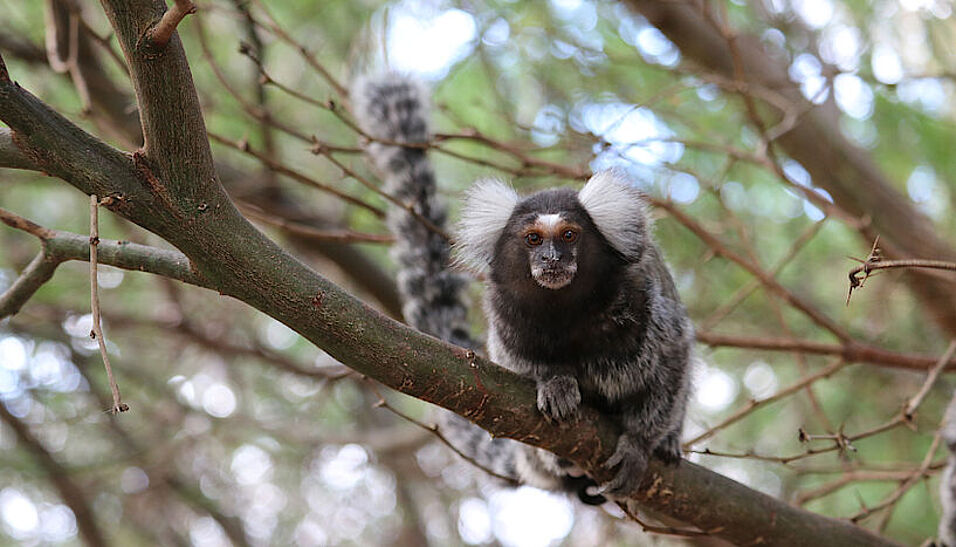Marmosets are small highly social New World monkeys that parallel humans in their social organization, as they live in cohesive family units, where parents act as breeders and their offspring help them raise the young. The researchers showed that captive monkeys living in Austria as well as those monkeys living under natural conditions in semi-arid Caatinga forests of Northeastern Brazil show consistent differences in their personalities, similarly to humans.
In the personality tasks, the monkeys could explore and engage with a familiar environment, new foods, new objects, and situations mimicking a predatory situation (e.g. encountering a plastic toy snake or a strange-looking object). The researchers carefully observed these monkeys’ reactions in the tasks, for instance when trying a piece of jackfruit or engaging with a colorful rattle shaped toy. Some individuals were fast to approach any novelty, while others were more careful; hereby showing a similar pattern to humans: for instance, some humans enjoy trying out new restaurants, whereas others prefer to eat in their favorite restaurant. What is more interesting, when comparing personality traits of monkeys in Austria across four years, the authors found that these monkeys are quite consistent in their personality traits (e.g., those that are explorative when they are younger, stay similarly explorative four years afterwards). The only exception to this rule were monkeys who changed their breeding status in the family units. [more]
News & Events
Marmoset monkeys have personalities too
08.02.2021

© Vedrana Šlipogor
